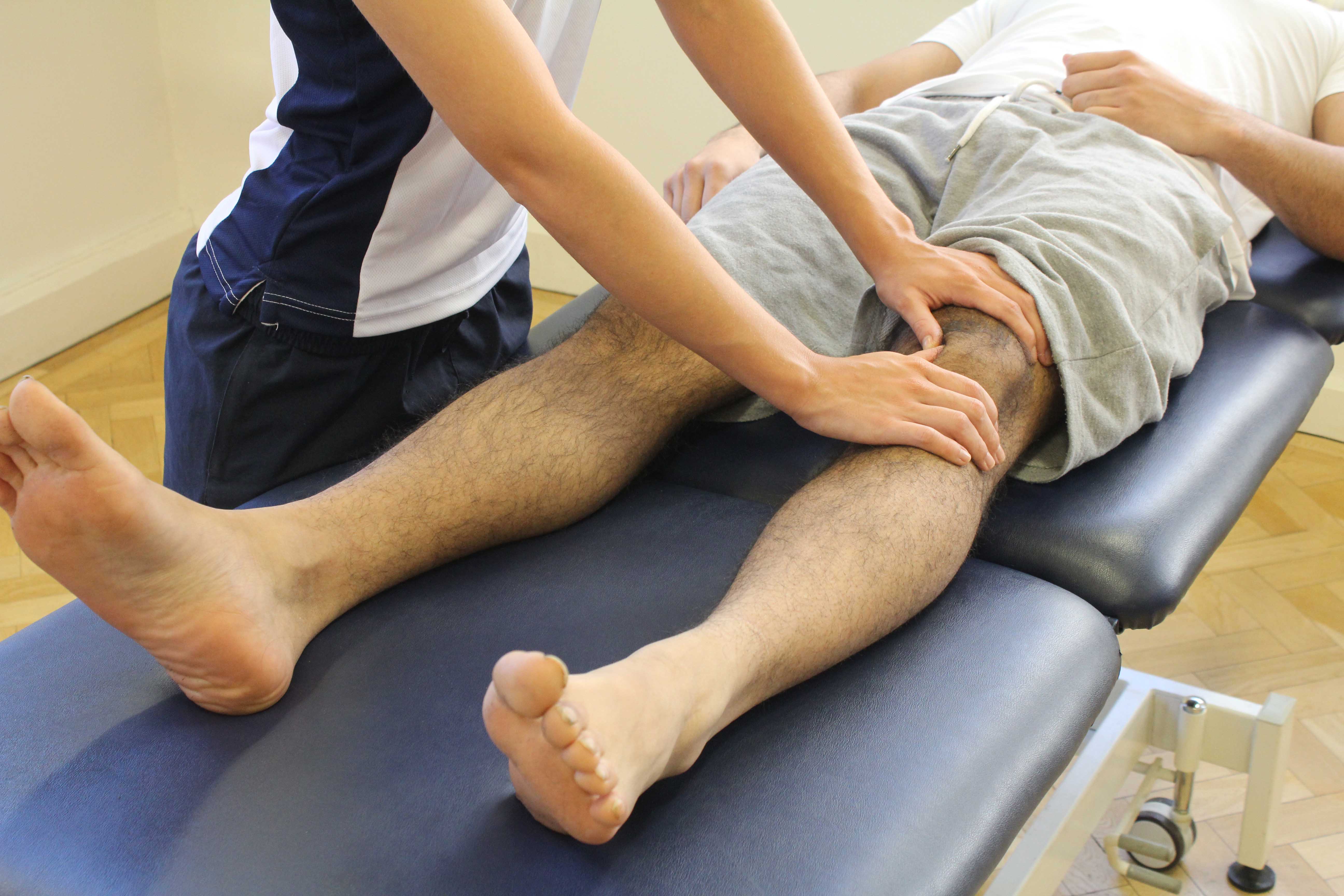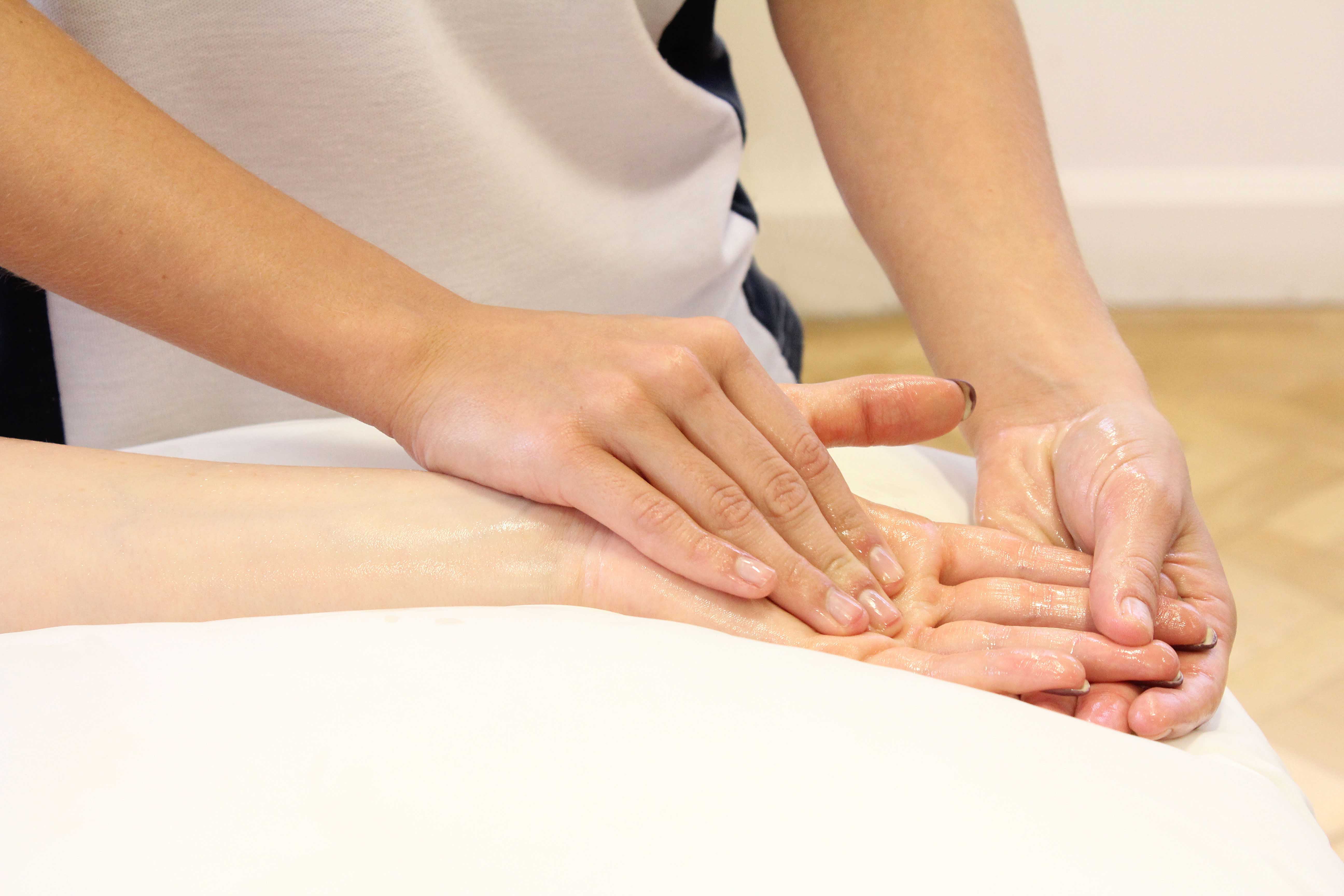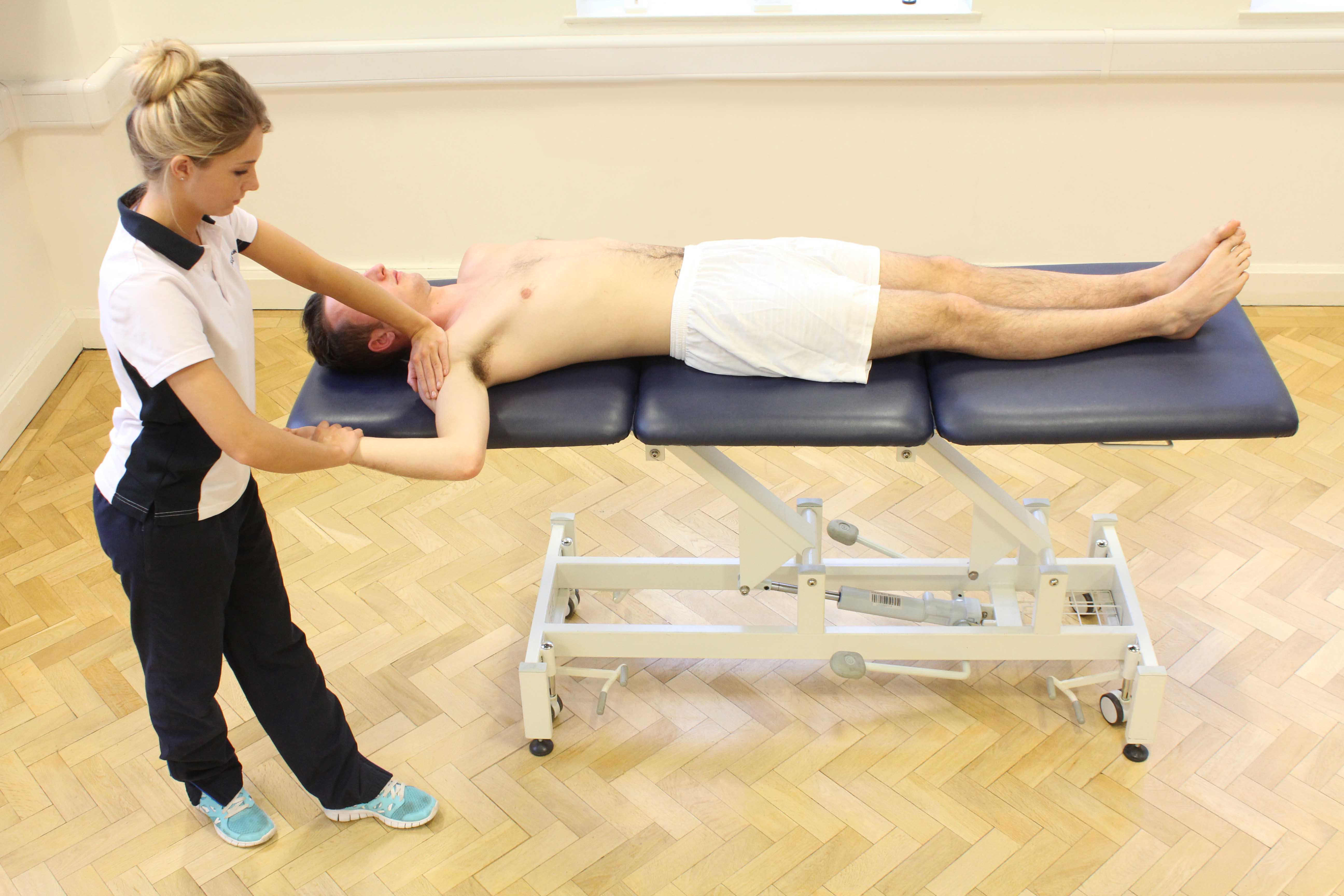What is reactive arthritis?
Reactive arthritis is an inflammatory condition that occurs following an infection such as a cold or flu. Reactive arthritis can affect anyone but usually affects younger people under the age of forty and there is thought be a genetic link associated with the condition. Reactive arthritis can present with symptoms such as pain, swelling and stiffness which can have an impact on your daily lifestyle.
Unlike other types of arthritis, including rheumatoid arthritis and osteoarthritis, reactive arthritis usually only lasts up to six months while the infection is cleared up. During this time it is important that you remain as active as possible and keep your symptoms under control. Physiotherapy can help you manage your condition and minimise the impact that it has on your daily routine. Physio.co.uk has experienced physiotherapists that will work with you to develop a specialised treatment programme to optimise your recovery from septic arthritis.
 Above: Massage and mobilisations of the joint and connective tissue of the knee
Above: Massage and mobilisations of the joint and connective tissue of the kneeWhat are the symptoms of reactive arthritis?
Reactive arthritis can cause a number of symptoms and affects people in different ways. Your physiotherapist at Physio.co.uk will work with you to create personal goals that can be followed in your programme. Symptoms of reactive arthritis may include:
- Swollen joints
- Red and hot joints
- Stiffness
- Pain
- Reduced movement
- Low back pain
- Swollen tendons (e.g. Achilles tendon)
- Skin rashes
- Fatigue
- Fevers
- Inability to carry out normal activities of daily living
- Walking difficulties
 Above: Soft tissue massage of the palma fascia to relieve pain and stiffness
Above: Soft tissue massage of the palma fascia to relieve pain and stiffnessHow is reactive arthritis diagnosed?
There is no single test to confirm reactive arthritis and therefore doctors rely on a number of different factors including blood tests and an examination of your symptoms. Possible tests include:
- Stool sample
- Swabs from different parts of the body
- Blood tests
- Eye examination
- Physical assessment
 Above: Soft tissue massage of the palma fascia to relieve pain and stiffness
Above: Soft tissue massage of the palma fascia to relieve pain and stiffnessHow will physiotherapy help with reactive arthritis?
Physiotherapy will help with reactive arthritis in a number of ways. Your treatment programme will be tailored to specifically manage your symptoms and help you return to your normal activities of daily living. Physiotherapy with Physio.co.uk may help in the following ways:
- Reduce inflammation
- Reduce pain
- Improve range of movement
- Increase cardiovascular levels
- Help return to activities of daily living and sports
- Increase energy levels
What physiotherapy will be used for reactive arthritis?
Your physiotherapy programme at Physio.co.uk will depend on your current symptoms and will be adapted by your physiotherapist each session. You will be actively involved in your treatment and will be asked to help develop goals and targets to help tailor your programme. Physiotherapy may include:
- Strengthening exercises
- Hydrotherapy
- Cryotherapy (ice therapy)
- TENS
- Range of movement exercises
- Cardiovascular activities
- Electrotherapy including Megapulse/ Ultrasound
- Provision of specialist equipment to help you around the home
- Splints to protect and support affected joints
- Pain control modalities
- Pacing advice
- Joint protection advice
Summary
Reactive arthritis is an inflammatory condition which is caused by an infection elsewhere in the body. The symptoms of reactive arthritis include pain, swelling, stiffness and general fatigue. The condition usually only lasts up to six months and therefore it is important that you try to minimise the symptoms during this time and physiotherapy is a very effective way of doing this. Physio.co.uk has experienced physiotherapists that will devise a personalised treatment programme to help optimise your recovery. Please call Physio.co.uk on 0330 088 7800 to book an appointment today. or you can alternatively book online

 0330 088 7800
0330 088 7800

































